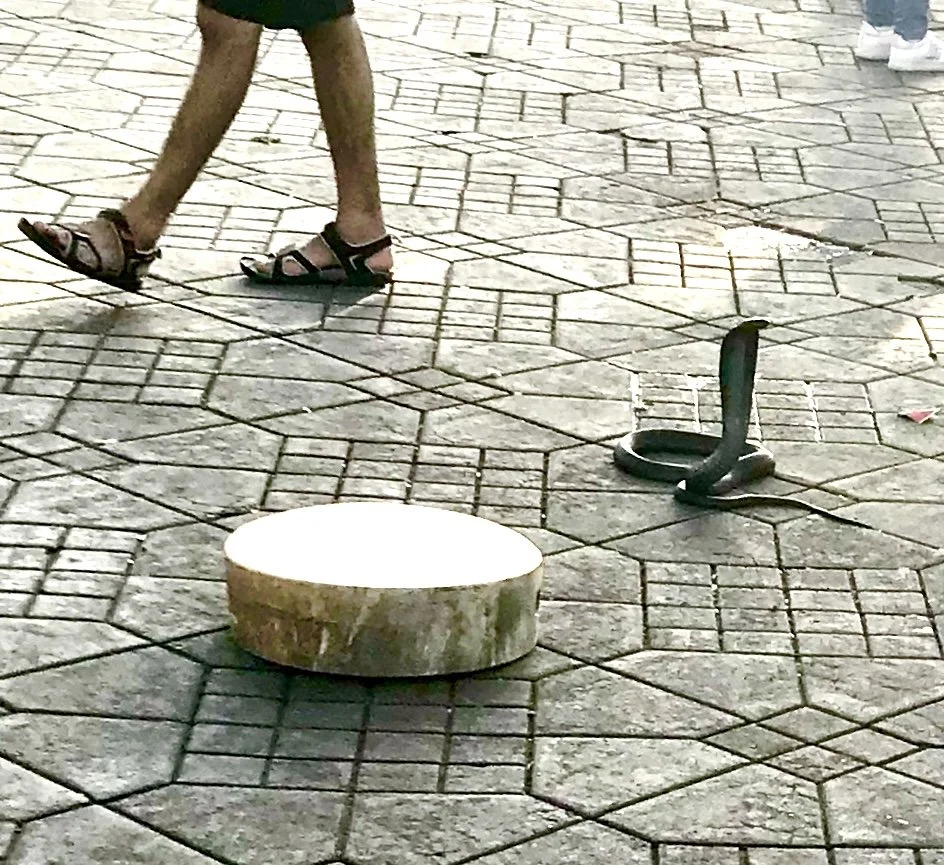If you’ve ever wondered what it’s like to travel on your own, let me take you on a journey and together we’ll explore the world.
***
Along with travel tips, anecdotes and evocative descriptions of places visited, ‘Going Solo’ will inspire you to travel as a way of resetting life with confidence as it touches on our notions of belonging and identity. Reflections on my past expat living experiences flesh out a focus on how unfamiliar external environments offer us a stage on which to transform; refocus priorities, find our spiritual equilibrium and so move forward as a truer version of ourselves. I hope the extracts included on this website will whet your appetite to read more.
Photos & illustrations complete the text.
AU $21.99 (plus postage)
Illustrations and Images
While the book contains lovely pen & ink illustrations and a host of B&W photographs, my collection of colour photographs on this website serve as a lovely companion to reading the memoir.
Cover image
The Berliner Dom is Germany’s largest Protestant Cathedral.
Housing the nation’s most significant dynastic tomb, it also reminds us that even the candle of emperors burns but briefly. The magnificent structure also symbolises many of the memoir’s themes such as:
history recorded in architecture; a return to immigrant roots; national identity; contrast and contradiction
unification; separation of church and state/religious conflict; war and survival
Extracts
Extracts are naturally out of context. These paragraphs were taken from chapters that present fuller and deeper observations. They are offered here as a sample of what the memoir aims to convey.
A traveller’s sense of place: Marrakesh
Extract: Quadrophonic sound assails my ears – percussion, strings, shouting, and yodelling combine in an exciting cacophony. There are busker-style performances creating music among the vegetable and souvenir stalls. Their colleagues collect coins from the gathered audience. One ‘colleague’ collecting tips is a trained monkey. Directly opposite me is the snake charmer I’d passed earlier with Omar when he’d been playing his gaita bagpipe. Now the old fellow’s fast asleep, but where’s the cobra? Suddenly, I see it three metres to the side, under people’s feet. Does no one notice, or are they simply ignoring it? A man wearing a long, white kaftan approaches, takes off his straw hat, and places it over the snake. No one stops to wonder why a broad-brimmed yellow straw hat is turning circles in the middle of the market. (section omitted)
As dusk dims into night, the lighting stores take centre stage, and their luminous wares transform the stores into a magical world. Perforated shades send streams of light through the pierced metal of their arabesque shapes. In my imagination, I’m a child, reliving the stories of the Arabian nights. There are other stores reminiscent of Aladdin’s cave. The evening illumination reflects off the metal on bronze-studded jewellery cases and metallic sculptures, making the wares look more luxurious at night.
Humour: vital to our concept of self
Extract: ‘You think this video clip is funny? I have never understood English humour. What is amusing about this situation?’ he says. I’m at a loss to explain to my ageing German relative why someone’s unpredictable, absurd and unsanitary behaviour is hilarious – Monty Python would send him into shock. In my search for how I fit into a cultural landscape, this conversation reminds me that the English language, its humour and literature have shaped my funny bone. Humour is an integral part of who I am – a life raft that keeps me afloat through life’s turbulence, a tonic that heals me when I’m unwell, and a glue that binds me to friends. The difference between English humour and the perceived German lack of it has always caused much discussion. When asking older Germans about their sense of humour, many are quick to point out that there was little to laugh about from around 1914 for the next fifty years or so. There was a tendency for many of those who experienced the Great Depression and world wars to end up with profoundly serious dispositions. Unintentionally, some passed this on to their children, but today’s generation has moved on. Now, the variety in entertainment, online access to global culture including comedy, continue to increase and evolve. If a ‘lack of humour’ was ever part of a so-called German national identity, this no longer seems to describe the bulk of today’s society – another discovery that warms my heart.
Who are you, really? Do you know?
Extract: We’re such a complex species that it’s small wonder we seek out definable categories and even pigeonhole ourselves into groups with which we identify allowing their descriptions to partially suffice as ‘self-knowledge’ that helps us more easily explain who we are. These groups may be the 12 Eastern or Western horoscope signs which millions take very seriously and commit to studying in great detail, or the personality types such as those defined by the 16 Myers-Briggs or the 9 Enneagrams that describe both positive and negative characteristics. It’s somehow reassuring and enjoyable to be able to say that you’re a typical Aries, or a Rabbit, a Negotiator type or an Enneagram 1. My truth is, however, that our very complexity means we may find ourselves fitting several or most of the ‘categories’ described in any given week, situation or stage of life, and may then be surprised when this leaves us again questioning who we really are. The psychotherapist and founder of the Internal Family Systems (IFS) therapy, Dr Richard Schwarz, in his book, No Bad Parts, points out that we do indeed have multiple personalities. It’s reassuring to read evidence of a complexity that demonstrates what a disservice we do ourselves when we try to fit into personality pigeon-holes that may limit the personal growth exploring the world may otherwise make possible.
National Identity and Stereotypes
Extract: Seeing the train pull into the station at its exact scheduled time reminded me of the security guard’s objection to the three-centimetre-transgression of my plastic pouch for liquids at Zürich airport a few weeks ago. It also brings back memories of when I first discovered the Swiss passion for the efficiency and precision (hiring bicycles at a railway station) that underpins everything from train schedules to Zürich being the global centre for banking and finance. (Section omitted)
If there is such a thing as an overall national identity, I sense it all around me in Zürich. However, such generalisations come with questions. The first is to what extent aspects of a stereotype apply to individuals. The second relates to how social or cultural norms, ethics, and beliefs develop within a society to become behavioural patterns or core-value beliefs passed down successive generations. (Section omitted)
On my long walk shortly after dawn, the city had been almost silent except for the occasional whoosh of tyres as the odd car drove along the roads still wet from the heavy downpour overnight. The rain had washed the city, and every breath felt like mountain air. I’m so used to the twenty-four-hour ambient noise of Sydney that the early morning silence of Zürich was almost eerie by comparison. I’ve stumbled upon a lovely café that’s part of the Pension für Dich, advertising homemade croissants for breakfast, but its door is locked. From a window, a smiling waitress calls out, ‘I’m sorry, we’re not permitted to open the door before eight.’
I must have looked disappointed because she suddenly takes pity. ‘If you could perhaps manage to climb through this window, that would be acceptable, and I will not be breaking house rules,’ she says.
I grin and catapult myself – in less-than-graceful baby-boomer style – through the low, open window. The cheerful waitress serves me coffee and the best home-baked croissants I’ve ever had; they melt in my mouth. Reluctantly, I force myself to stop after three!









